Every Episode of Doctor Who Series 6 Ranked From Worst to Best
Doctor Who Series 6 is the difficult second album for showrunner Steven Moffat, and it is the very definition of a hit-and-miss season. On the one hand, you have some of Moffat’s genius plotting and Niel Gaiman writing an episode, while on the other you have James Corden and an episode called “Let’s Kill Hitler”.
It makes it a fun series to recap though, because it means I get to dole out a lot of praise and have a good old moan while I’m at it.
Let’s Kill Hitler
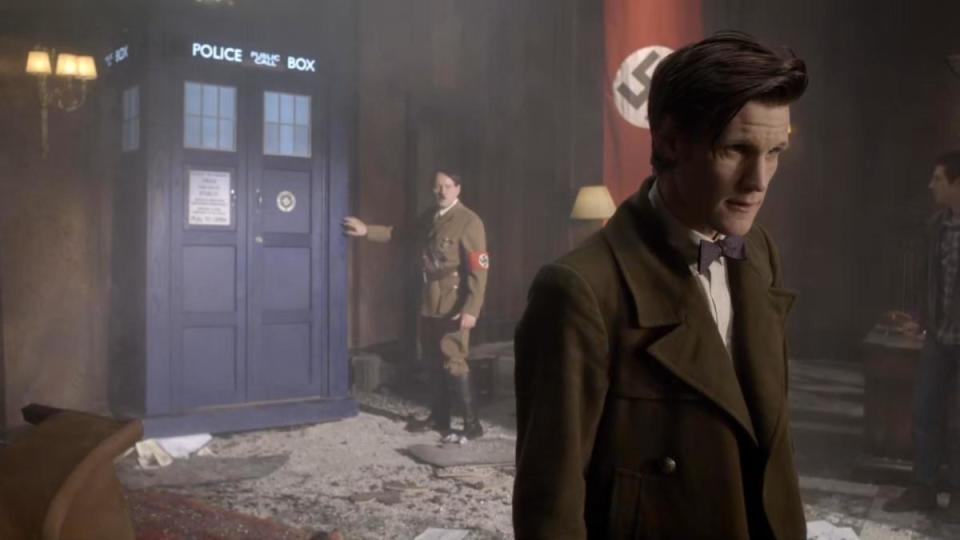
BBC
When A Good Man Goes to War ends, and you’re left with one of the best mystery reveals in the show’s history, it’s quite the tonal whiplash when the words, “Doctor Who will return in: Let’s Kill Hitler” appear on the screen.
It’s the kind of episode you have to brace for, because you know there’s a good chance it could be a disaster. Unfortunately, that’s exactly what we got, although Hitler actually had very little to do with it. We get some good little laughs at the start out of “putting Hitler in the cupboard” and all that, but it moves away from that almost immediately. I can’t believe one of the biggest complaints about “the Hitler episode” is that there isn’t enough Hitler in it, but here we are.
Once all that’s over we get quite a bad plot sorting out River Song’s dynamic with the Doctor. Like with other bad Moffat episodes, I like lots of individual ideas, but they fail to make an impact. Things like River becoming her mother’s childhood friend, or her slowly having to become the intelligent and calculating figure we know she eventually becomes. Instead, we get a bunch of rubbish with the Doctor flailing around aimlessly (literally) for most of the episode while Rory and Amy do nothing of consequence, simply catching up with the plot until it’s time for the climax. It also wasted the Teselecta, which again, is a great concept.
It feels like Moffat wanted to give the first episode back from the mid-season break a big hook, but didn’t actually want to reveal or resolve anything until the finale. So what we got instead was 45 minutes of wheel-spinning and pointless action.
Closing Time

BBC
While it was far from the best episode of Series 5, I got a kick out of The Lodger, and despite how I feel about James Corden as an actor, he is pretty good in that role. That said, I didn’t need a second visit.
Closing Time is the sequel that fails to understand what worked about the original. It plays with the Doctor living a normal life, but instead of being charming he just becomes a bit weird, playing about in a toy shop and using Craig’s son to make endless jokes at his expense. Even what charm Craig had is gone in this episode. Where before he was fun as this poor normal man who was struggling to deal with the Doctor suddenly being in his life, now he’s just a bumbling sidekick who doesn’t add much.
Also, the Cybermen are there, generally being evil, there’s not any more substance to it than that.
The Curse of the Black Spot

BBC
Pirates are fun, and that’s about as much as this episode has going for it. This is an episode where I like the twist of a crashed spaceship and a nurse AI gone wrong, but it takes so long getting there that I lose interest halfway through. It’s very much a case of a 30-minute plot stretching to fit 45, and it suffers greatly for it.
Instead, we have to watch all of the characters acting in stupid and illogical ways just to create a bit of action before we can get to the twist and have a decent ending to the thing. Still, as I said, the pirates are fun.
The God Complex
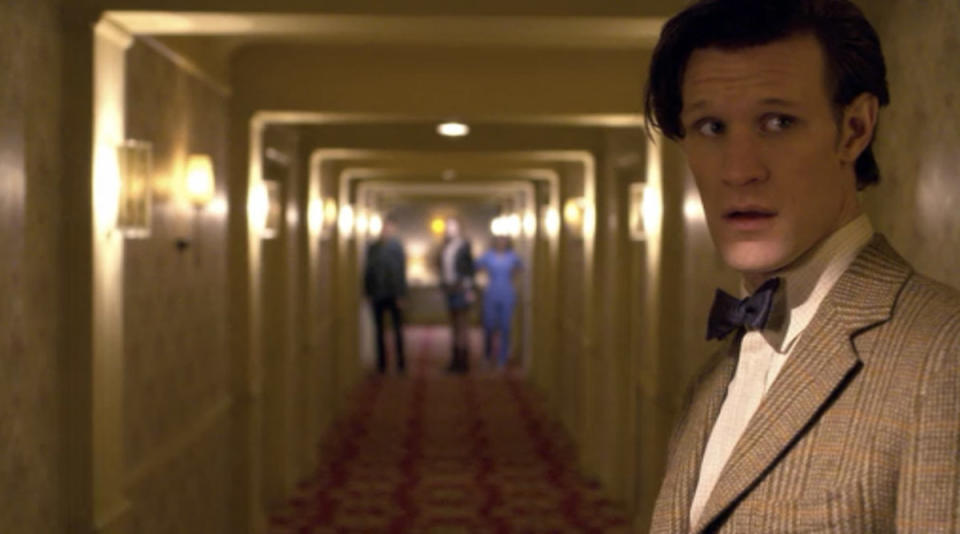
BBC
I don’t think this episode is especially terrible, it just tends to fall into the forgettable bucket. The concept of an endless hotel – somewhere within is you worst fear – is great, and actually a bit ahead of its time when you consider how obsessed the internet would become with the concept of the Backrooms years later.
It creates an immediate mystery of what is hidden in all of our main characters’ rooms – something that goes disappointingly unfulfilled. It also pushes our heroes into the twist, which I love, of them falsely assuming that fear is what the monster feeds on. The reveal that it’s actually faith – with fear being a tool to force you to rely on that – is great, but I don’t like how the finale sequence treats Amy like an idiot.
Her faith in him driving her to the brink is great, but the idea that she couldn’t see through what the Doctor was doing when he told her to stop believing in him is quite an insult to her intelligence, and it doesn’t feel like it earns the final scene where he gives them a life on Earth.
The Rebel Flesh & The Almost People
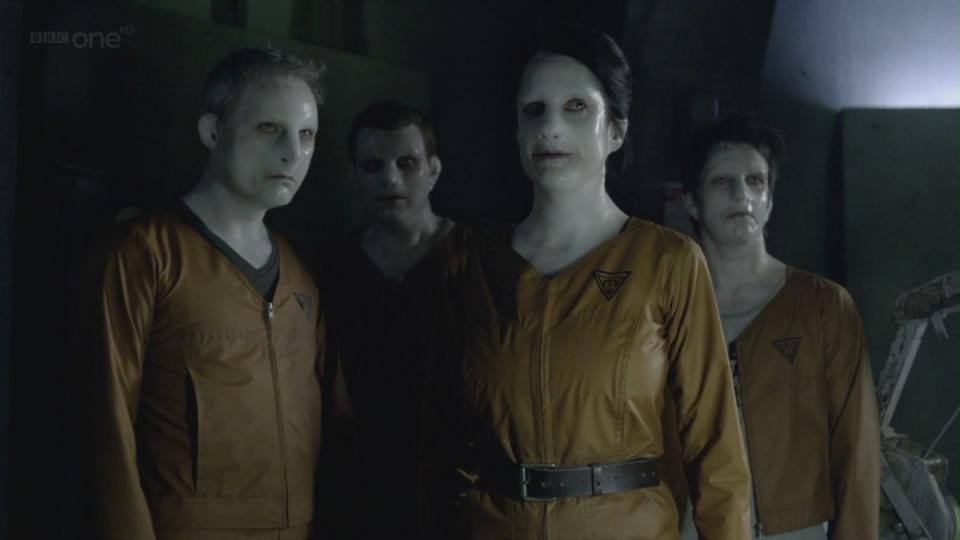
BBC
I don’t hold anything against this story, but it tends to be one that I skip on a rewatch. It plays with a lot of fun ideas that we may one day have to face with cloning technology. The ethics of how we treat copies and doppelgangers is a fun sci-fi concept that I’d love to see a deep dive into. Unfortunately, this story doesn’t do that to my satisfaction.
It presents the ideas but doesn’t do much with them, and in the end reduces the gangers to villains anyway, which defeats the whole point the episode was trying to prove. Even the Doctor’s copy goes underutilized, as it feels like it’s building to a point about Amy’s prejudice, but never actually gets there, as the action sweeps everything up and treats the copy as it’s disposable anyway.
That said, there is a lot of fun action here, and Matt Smith playing off himself may be insufferable to some, but it puts a smile on my face every time.
The Wedding of River Song
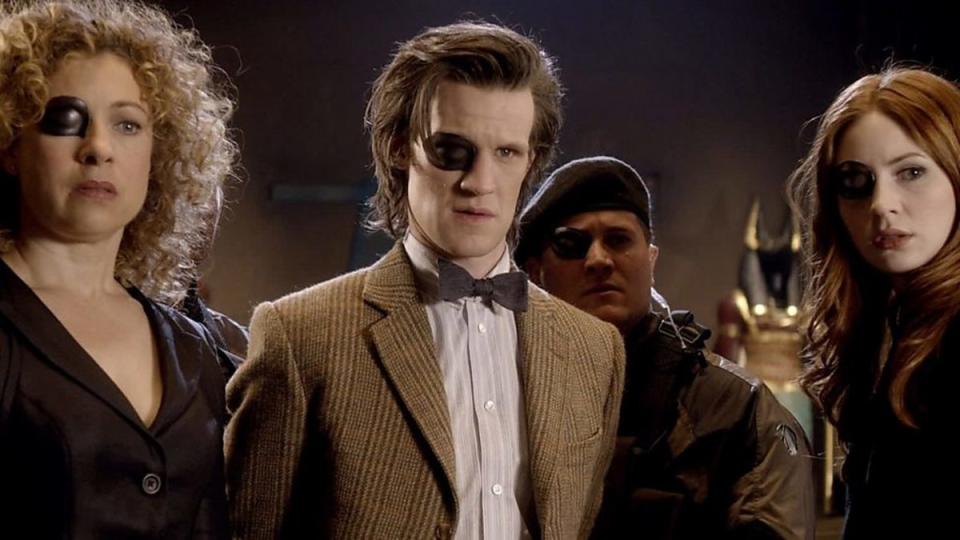
BBC
This episode just never feels like a proper finale whenever I watch it. There’s a lot of Moffat’s great plotting and even some solid character writing in here, but once it’s all said and done I don’t feel like any of it made an impact, despite being quite a fun adventure.
The idea that most of the episode happens outside of time itself means that we can just throw everything to the wind once it’s all over like it never mattered. The final scene tries to give some weight to it after she killed Madame Kavarian, but then immediately brushes it off like it doesn’t matter. Rather than giving any of that emotionality any weight, we get caught up in the reveal of how the Doctor survived his own death.
For what it’s worth, that reveal is a lot of fun. It doesn’t help the Teselecta feel like anything more than a glorified plot device, but it was something I didn’t see coming when I watched it for the first time and put the Doctor on an interesting path going forward – even if that never really paid off in future seasons.
The Impossible Astronaut & Day of the Moon

BBC
Kicking off with a two-parter is a bold choice, but after the questions the Series 5 finale left hanging, it was great to immediately jump into an adventure with proper stakes and a new recurring villain. The idea of the Silence is just brilliant. A race that is memory-proof and thus can live on Earth for centuries and influence humans without being noticed is such a fun concept to play with. It plays into a great finale too, as the Doctor uses exactly that fact to turn the human race against them without them even knowing it’s happening.
As for what happens in the middle, it’s not the most thrilling adventure ever, but it has its moments. A four-person TARDIS team was (at the time) a nice change of pace, as seeing River having fun interactions with everyone is always worth it.
Night Terrors
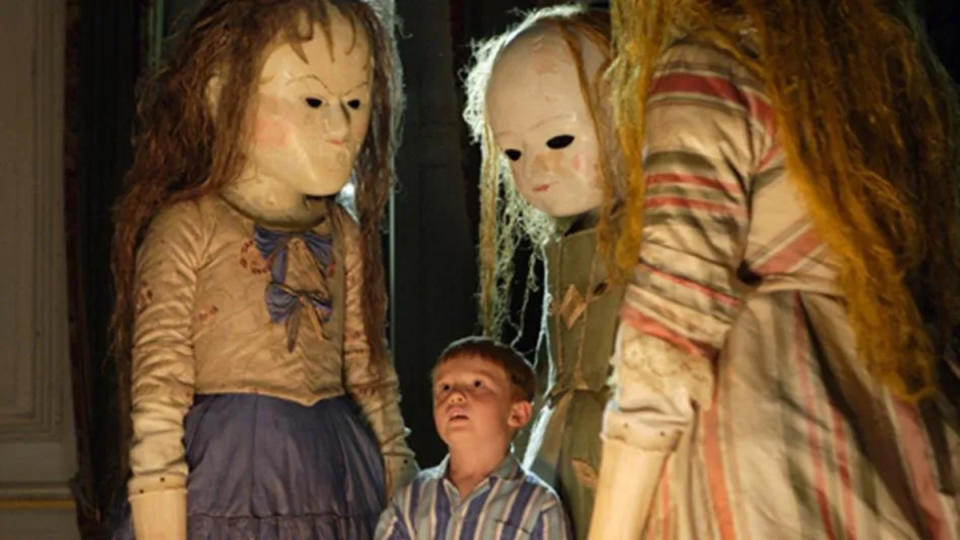
BBC
I’m going to use a word I don’t generally like to use, especially when referring to Doctor Who, as every episode is someone’s favorite, but I think Night Terrors qualifies as an underrated gem of an episode.
It may not be truly scary in the way it wants to be, but it is an enjoyable level of creepy, as Amy and Rory explore the dollhouse. What I really love about Night Terrors is the mystery surrounding George, and how this child’s imagination is seemingly able to cause so much chaos. The interplay between the Doctor and George’s dad is great, as he welcomes the Doctor’s help but also grows increasingly exasperated as the situation pushes him further and further out of his depth.
It also has a good message of being careful what you say around kids, especially when you think they’re not listening, as they can take things much more harshly than you intend and create some real issues – even if they aren’t secretly aliens who can make their fears come to life.
The Girl Who Waited

BBC
Playing with different time streams is a great way to create some classic sci-fi drama, and The Girl Who Waited is one of Doctor Who’s best examples of that kind of story, as it manages to tell us two simultaneous stories that also stand in paradox to each other.
While we mainly follow Rory and the Doctor trying to rescue old Amy from the facility, we also see young Amy working out how to survive in a series of events that would eventually prevent old Amy from ever existing. It takes a little while to get to the juicy stuff, but once it does, it’s some of the most memorable and heartbreaking moments in the whole series, as Rory has to sacrifice old Amy to save the young one.
The one problem I have with it though is how the Doctor gets away with very little consequence for all of this being his fault. We get small moments where Rory snaps at him and old Amy professes to hate him, but it never goes far enough that you feel like he’s properly paid the price for screwing up and then lying to everyone about the solution.
A Good Man Goes to War

BBC
This is an episode that lets loose and allows the Doctor to have a lot of fun, before slowly crashing his world down around him. The sequence where he takes Demon’s Run is so enjoyable every time I watch, and the idea that the Doctor is finally calling on every favor everyone he’s ever met has ever owed him is a great way to explain how he pulled it together.
Of course, this is a mid-season finale, which means everything has to fall apart by the end, and the way the Silence completely outplays the Doctor is just as brilliant – even if the flesh clone trick is a bit cheap. Plus, it leads to a fantastic reveal of River Song’s true identity that taps into just the right amount of timey-wimey twists that it feels unique to Doctor Who.
The Doctor’s Wife

BBC
In a series where the Doctor really did get married, this episode title being ironic is a brilliant decision. It plays with an extremely risky concept, but guest writer Niel Gaiman absolutely nails it. Making the TARDIS human could’ve been a disaster, but Gaiman creates the perfect presentation for what we’ve always known was a living being, yet we’ve never been able to see it as such.
It’s the little touches. Things like how at first she doesn’t understand how tenses work because she exists across all of time simultaneously, and the idea that she simply allowed the Doctor to steal her because she thought it would be fun. Then, there’s the bittersweet moment at the end where the TARDIS simply takes joy in the fact that she can say hello to the Doctor for the first time ever.
House is a brilliant villain, and expertly played by Michael Sheen. The way he uses the inner dimensions of the TARDIS to torture Amy and Rory is horrific in the most brilliant way, and the Doctor’s inner knowledge of the TARDIS ultimately outsmarting house is a wonderful, if heartbreaking, solution. It’s the perfect example of a writer coming in, understanding Doctor Who perfectly, and leaving an incredible stamp on the series with a uniquely creative episode.

